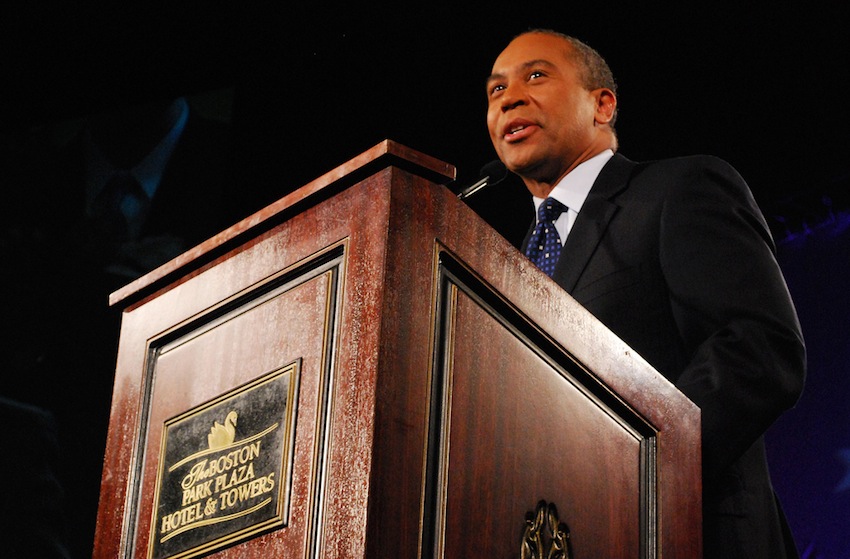Legislative Glitch: Deval Patrick Backtracks on Tech Tax
Governor Deval Patrick re-wired his stance on the state’s new “tech tax,” a law recently passed as part of a vast transportation reform bill that forces small software businesses to charge customers the 6.25 percent sales tax when developing products.
On Tuesday, Patrick called the tax a “serious blot” on the state’s reputation, according to the State House News Service, and admitted that it should be repealed in order to save face and continue to show that Massachusetts is an innovator and supporter of the tech industry.
The so-called “tech tax” is meant to bring in an estimated $161 million each year to help the state’s transportation infrastructure by applying the state sales tax to software manufacturers and developers.
Immediately after the proposal became law, on July 31, workers in the tech industry pounced on the legislature, calling for a repeal.
Many small businesses claimed they were blind-sided by the new tax and were surprised at how soon it was enacted without a chance to discuss the measures with elected officials. Some created interactive maps or blitzing campaigns to connect the public with their representatives so they could ask them to pull the switch. According to the law, the businesses must start adding the tax to customers’ bills starting on September 20.
Although Patrick has called for a change, adding that the revenue should come from a separate source, small-business owners in the tech sector aren’t convinced that the discussion regarding a repeal won’t turn into a political battle.
“Politically this is becoming a difficult issue to support, and I think the longer this waits, the more it becomes political poison for a lot of people,” said Brian Cardarella, principal at DockYard.com, a web and mobile application development software consultancy firm. “Leadership shouldn’t be looking at this as the right doesn’t win. Even though people might try to make this a political issue, they should just want to admit that this was probably a misstep, and given the reaction to this, it’s definitely in everyone’s best interest to repeal [it] immediately.”
Some legislative leaders, including State Senator Karen Spilka, D-Ashland, filed a bill to repeal the recently enacted software services tax. Senator Richard Moore, D-Uxbridge, recently joined her in support.
But Patrick said Tuesday that the conversations need to continue. Patrick also said he is working with the legislature to find a different source of revenue to fill the $161 million gap that would be left by the software tax if it were repealed.
“I think that the consensus [is] that replacing [it] with something [is] the better way to go. And I think the hard part now is to figure out what to replace it with,” Patrick said.
Cardarella said he doesn’t care where they get the money from to fund the gap as long as Patrick and the legislature act soon. “I think the chances are strong it will be repealed because he publicly stated it will be repealed,” he said. “The big problem they have is how do they fill the gap left in the budget, but that’s not our problem. They should fix this as soon as possible because the damage this will cause the software industry will far exceed whatever loss they would see in the budget.”



